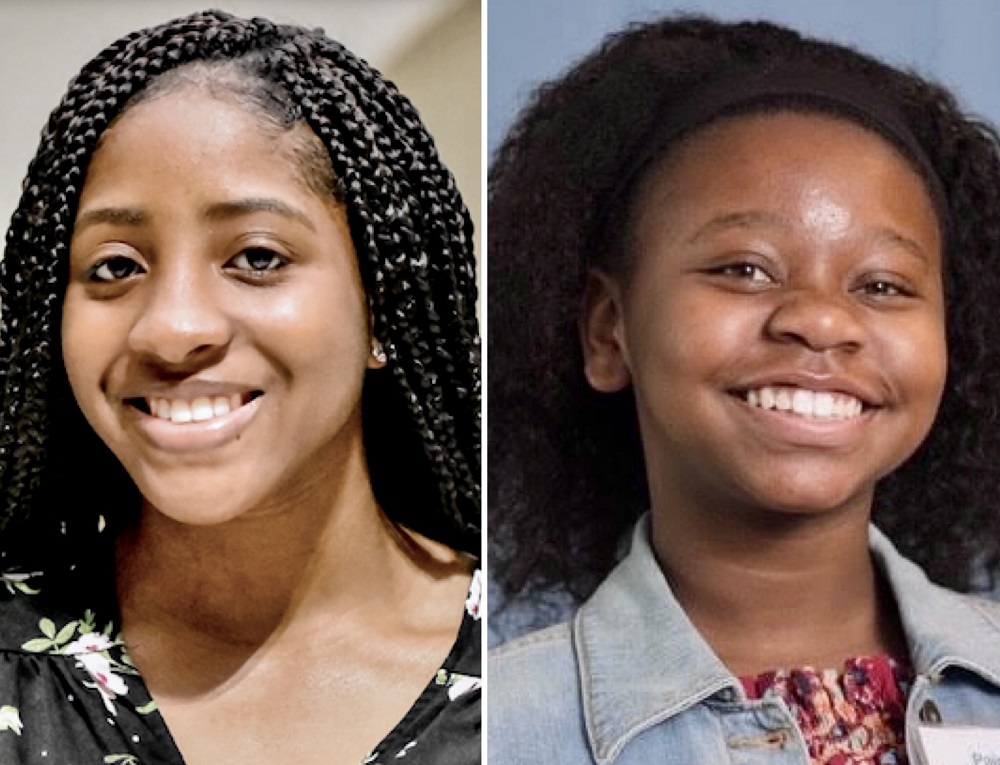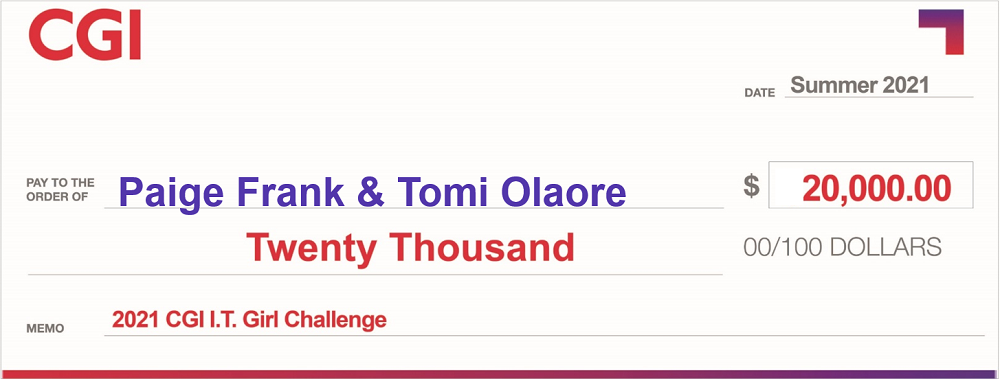
Two Pittsburgh teens win $20K for their Grade-Up app in the CGI I.T. Girl Challenge
Photo: Tomi Olaore, left, and Paige Frank.
Imagine a mobile app that gives young people a platform to communicate and help each other with schoolwork and study habits.
That’s the goal that Paige Frank and Tomi Olaore had in mind when they developed Grade-Up, a smartphone app that won them first place in this year’s CGI I.T. Girl Challenge in Pittsburgh — for a $20,000 scholarship to split.
“We wanted to create an app for students to communicate with their peers since the switch from school to online [during the pandemic] had been so hard,” says Paige, 16, of Sewickley, who will be a junior at Quaker Valley High School this fall.
“At the beginning of the program, we brainstormed the kind of app we wanted and concluded that the Grade-Up app [was it],” says Tomi, 17, of Stanton Heights, a rising senior at Pittsburgh CAPA, who became friends with Paige while participating in an artificial intelligence program offered by the Boys & Girls Club of Western Pennsylvania.
CGI, one of the world’s largest IT and business consulting services firms, hosted the 2021 challenge virtually over 12 weeks, connecting participants with each other and their mentors through Microsoft Teams and Zoom meetings.
CGI’s STEM@CGI program introduces information technology to young people, including female, Black, Latino and other underrepresented students. With some background in IT from the Boys & Girls Club program, Paige and Tomi used Tableau, Python and Thunkable to help build their app.
“It was a bit challenging at times,” says Tomi. “At first, we didn’t know where to start, but we watched YouTube videos and played around with the app we used to make our app and went from there. We mapped out the different features we wanted to have, and what we’d be able to accomplish in the time we had. Paige and I would meet two times a week, and once a week with our mentors. There were long hours spent trying to figure out some of the problems we had.”
The app has unique features such as live chat, group study, homework help, a “share space” for documents and notes, a profile section for users, an achievement feature and a calendar. The teens plan to polish the app more, with an eventual goal of commercializing and marketing it.
If they can secure funders, they want to offer rewards — such as Amazon gift cards — for students who are most active in school or who communicate for a certain amount of time, says Paige.
“We’re trying to work out that part now,” she says. “My favorite thing, to be honest, was the process of it all. I’ve always wanted to become a better problem-solver and to know how to deal with certain tasks. I was thrown a bunch of challenges and difficulties, and once I solved it, it was the best feeling ever.”
It was a lesson that will serve her well.
After high school, Paige wants to study computer science — hopefully at Carnegie Mellon University, though her backup college choices are the University of Pittsburgh and Penn State University.
“I like technology a lot and I’ve always wanted to do something with software engineering,” she says. “My dad has always told me to pursue a career in technology, anything that has to do with computers.”
Her parents were excited to see her join the CGI Challenge, as were Tomi’s.
“My parents like me being involved in different things, so they weren’t surprised,” says Tomi, who wants to study industrial or chemical engineering, and possibly computer science, at either Pitt, Penn State or Temple University. When she told her father about the challenge, “He said, ‘You should try it. Even if you don’t win, the experience counts.’ ”
Paige encourages other young women to get involved in STEM (science, technology engineering, and mathematics) programs, and perhaps try the CGI Challenge themselves.
“I feel like if a girl who did not have any interest in STEM were to come into this challenge, they would leave wanting to know much more about it,” she says.
